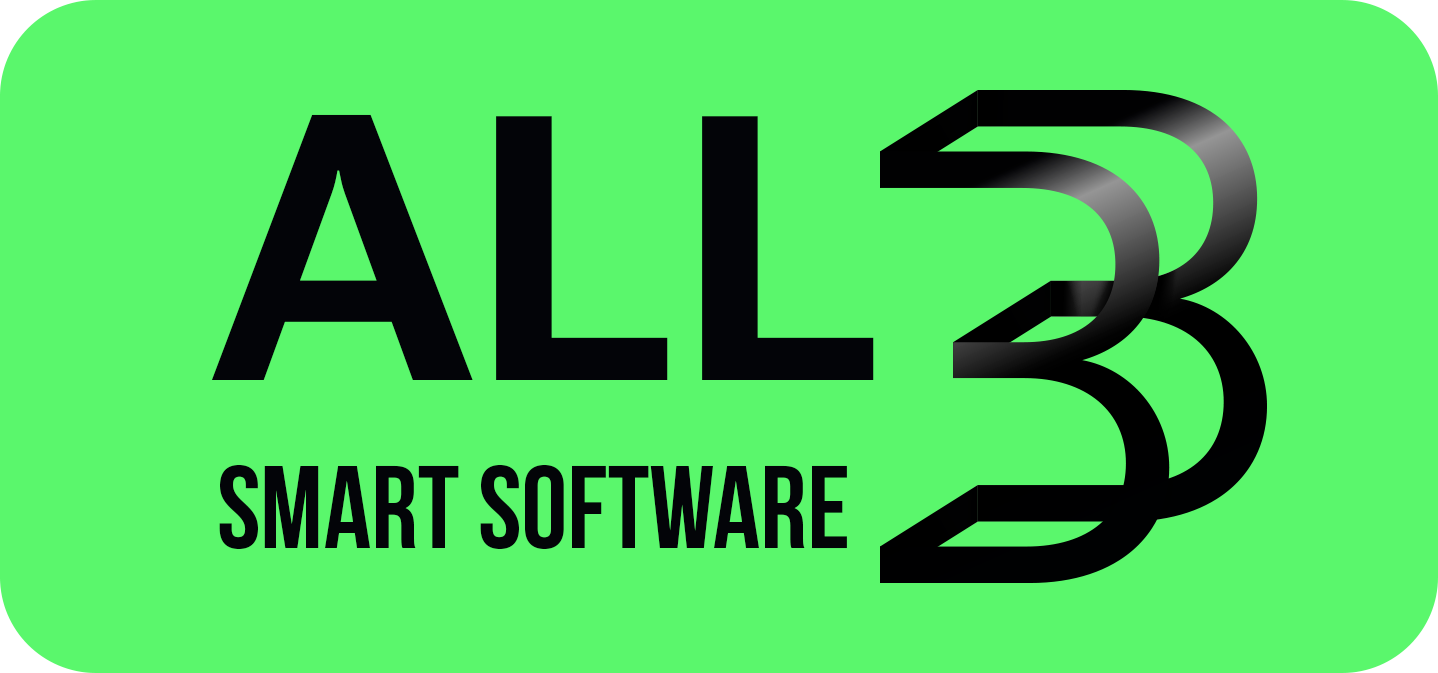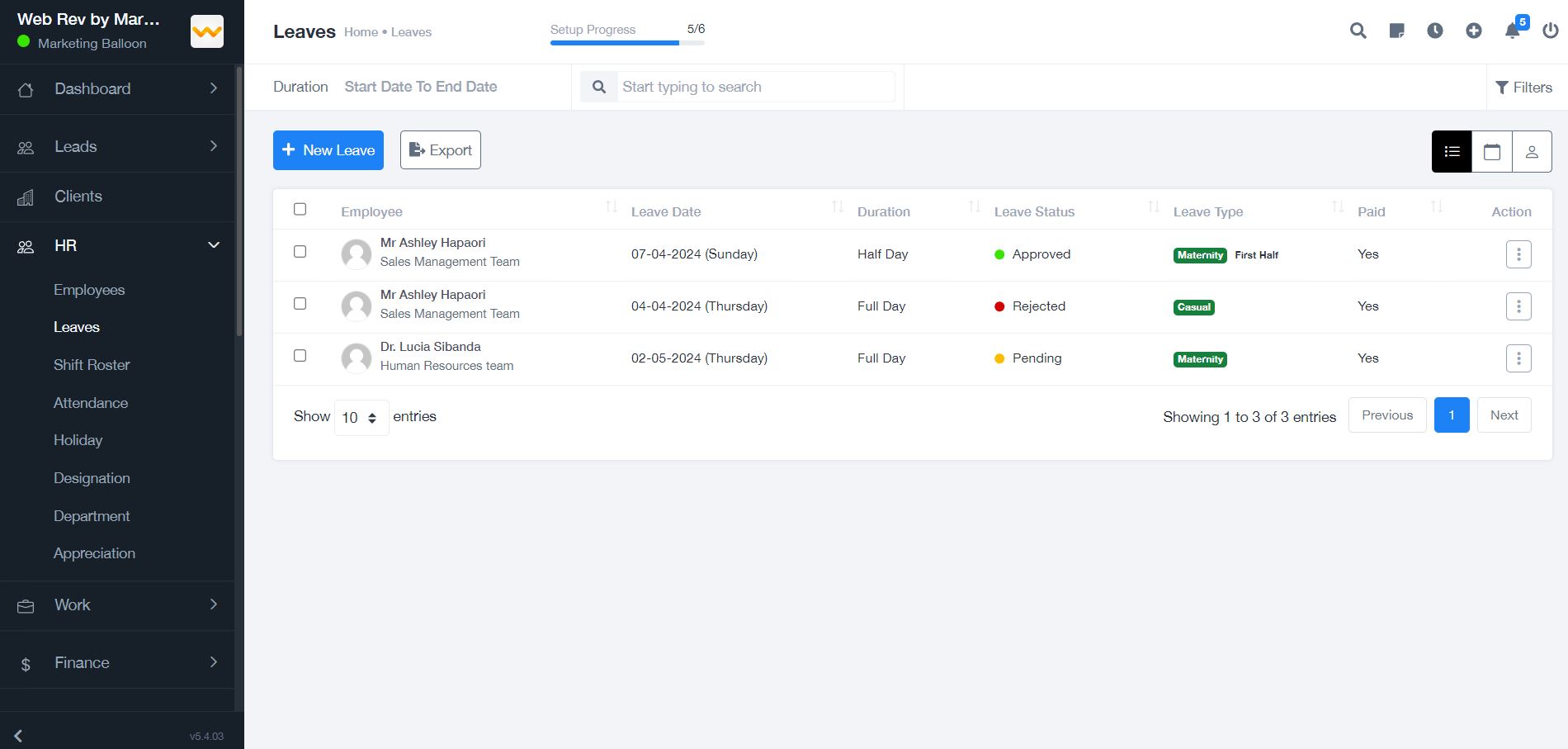Human Resources
A Human Resources (HR) Module in a business management system streamlines HR functions and helps organizations manage their workforce efficiently. It plays a critical role in employee management, payroll processing, benefits administration, and compliance. Here's a detailed overview of the key features typically found in a comprehensive HR Module:
1. Employee Information Management
Managing employee information is at the core of HR. This feature provides:
- Centralized employee database with personal and professional details
- Employee profiles with contact information, job titles, departments, and more
- Secure storage of sensitive employee data
- Integration with payroll and benefits systems
2. Recruitment and Onboarding
Recruitment and onboarding are crucial for attracting and retaining talent. This feature includes:
- Applicant tracking system (ATS) for managing job postings and applications
- Candidate scoring and evaluation tools
- Automation of onboarding processes, including document collection and orientation
- Integration with job portals and recruitment platforms
3. Payroll Management
Payroll management ensures employees are paid accurately and on time. This feature typically includes:
- Payroll processing and salary calculations
- Automatic tax withholdings and statutory deductions
- Integration with finance and accounting systems
- Generation of pay stubs and tax forms (e.g., W-2, T-4)
4. Time and Attendance Tracking
Accurate time and attendance tracking is essential for payroll and compliance. This feature offers:
- Time clock systems for employee check-in/check-out
- Timesheet management and approval workflows
- Overtime and absence tracking
- Integration with payroll for accurate salary calculations
5. Benefits Administration
Benefits administration helps manage employee benefits and compensation packages. This feature provides:
- Tools for managing health, dental, and retirement benefits
- Open enrollment management and automation
- Integration with insurance providers and benefits platforms
- Benefits cost tracking and reporting
6. Performance Management
Performance management allows HR teams to track and improve employee performance. This feature includes:
- Goal setting and performance tracking tools
- Employee reviews and feedback systems
- 360-degree feedback and multi-rater assessments
- Integration with learning and development platforms for employee growth
7. Learning and Development (Coming soon)
Investing in employee learning and development helps boost skills and retention. This feature offers:
- Learning management systems (LMS) for training and development programs
- Integration with online training platforms
- Tracking of employee training and certifications
- Customizable training content and course scheduling
8. Employee Engagement and Communication
Engaging employees is key to a productive workforce. This feature provides:
- Internal communication tools (e.g., chat, intranet, newsletters)
- Employee surveys and feedback systems
- Employee recognition and reward programs
- Collaboration spaces for team activities and engagement
9. Compliance and Legal Management
Compliance with labor laws and regulations is critical for HR. This feature includes:
- Tools for managing compliance with employment laws and regulations
- Automated alerts for compliance deadlines and required actions
- Audit trails and document storage for HR compliance
- Integration with legal systems for employee-related matters
10. Integration with Other Business Modules
An HR Module should integrate with other business functions for seamless operations. This integration can include:
- Finance and Accounting for payroll and benefits costs
- Project Management for tracking employee assignments and workloads
- Customer Relationship Management (CRM) for customer-facing roles
- Asset Management for tracking company assets assigned to employees
These features together create a comprehensive Human Resources Module that supports a wide range of HR functions, from recruitment and onboarding to payroll and compliance. The integration with other business modules allows HR teams to collaborate effectively across the organization, leading to a more cohesive and efficient workforce.


